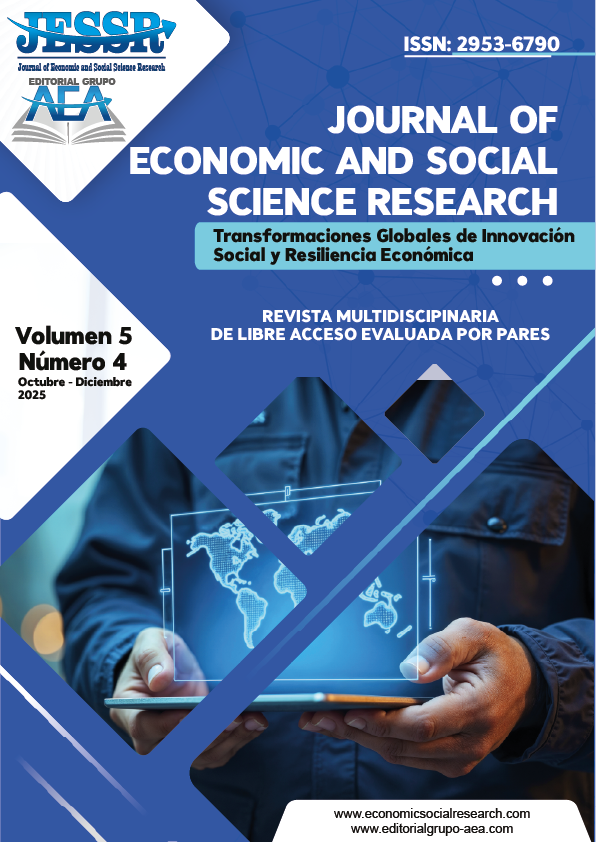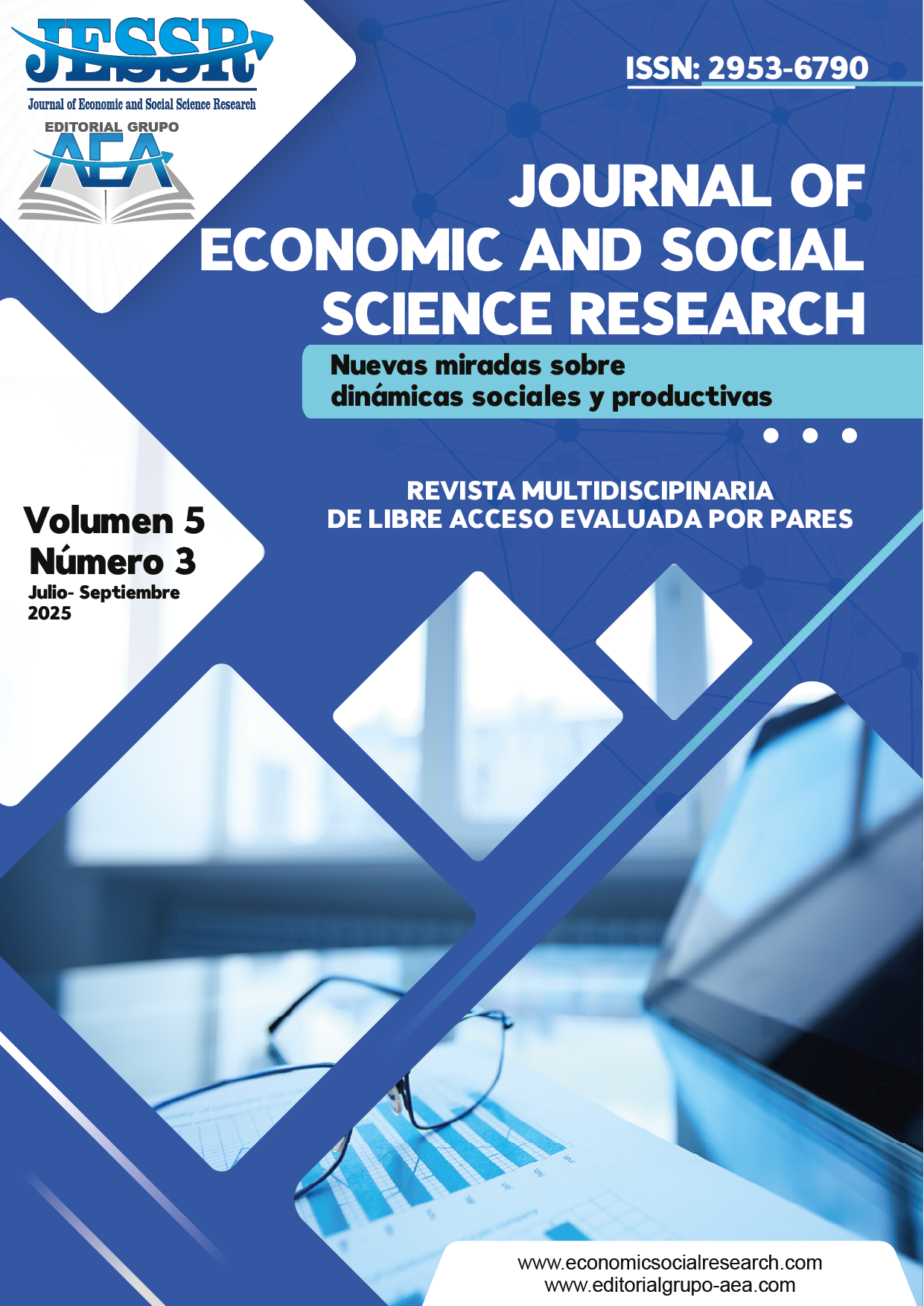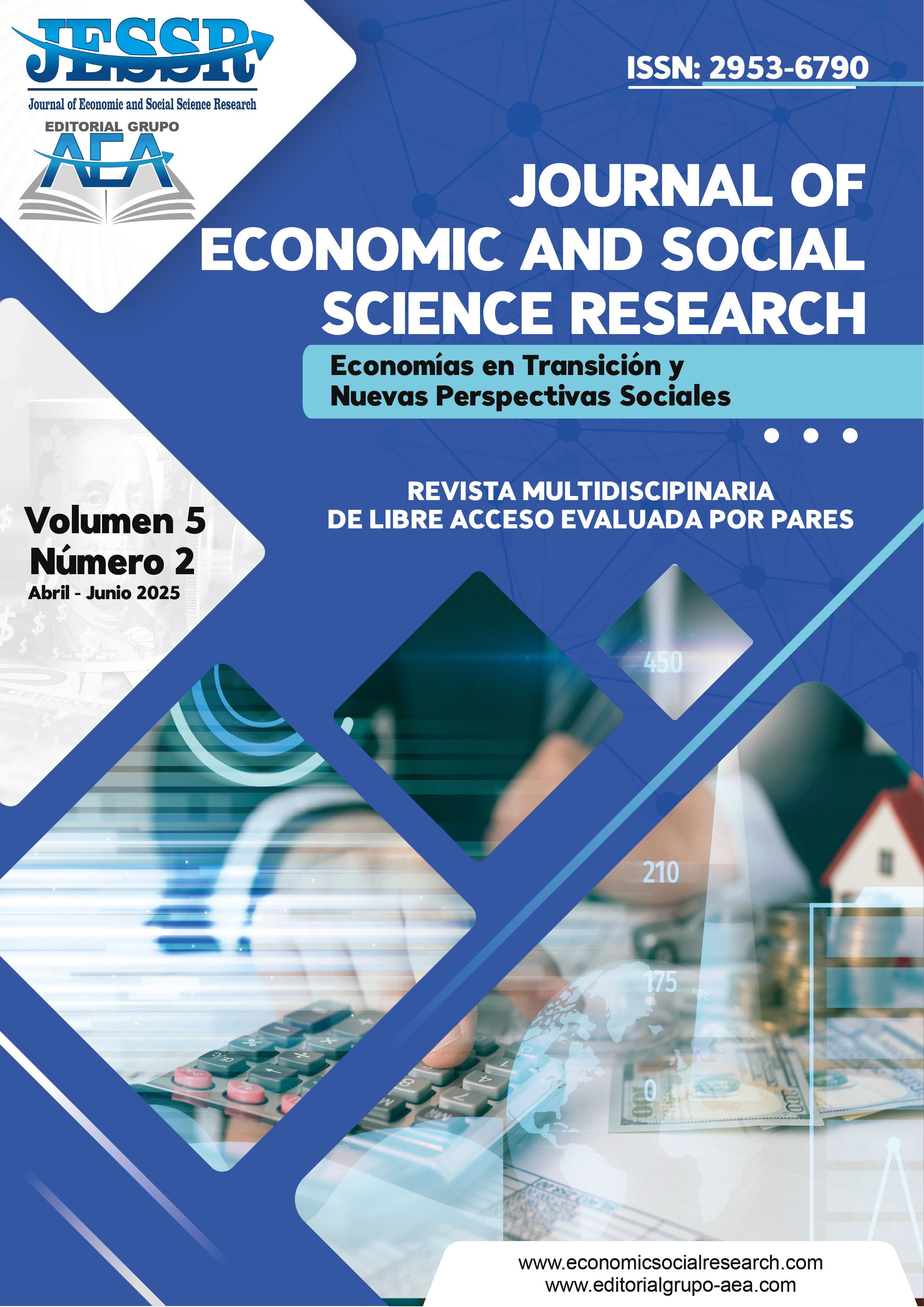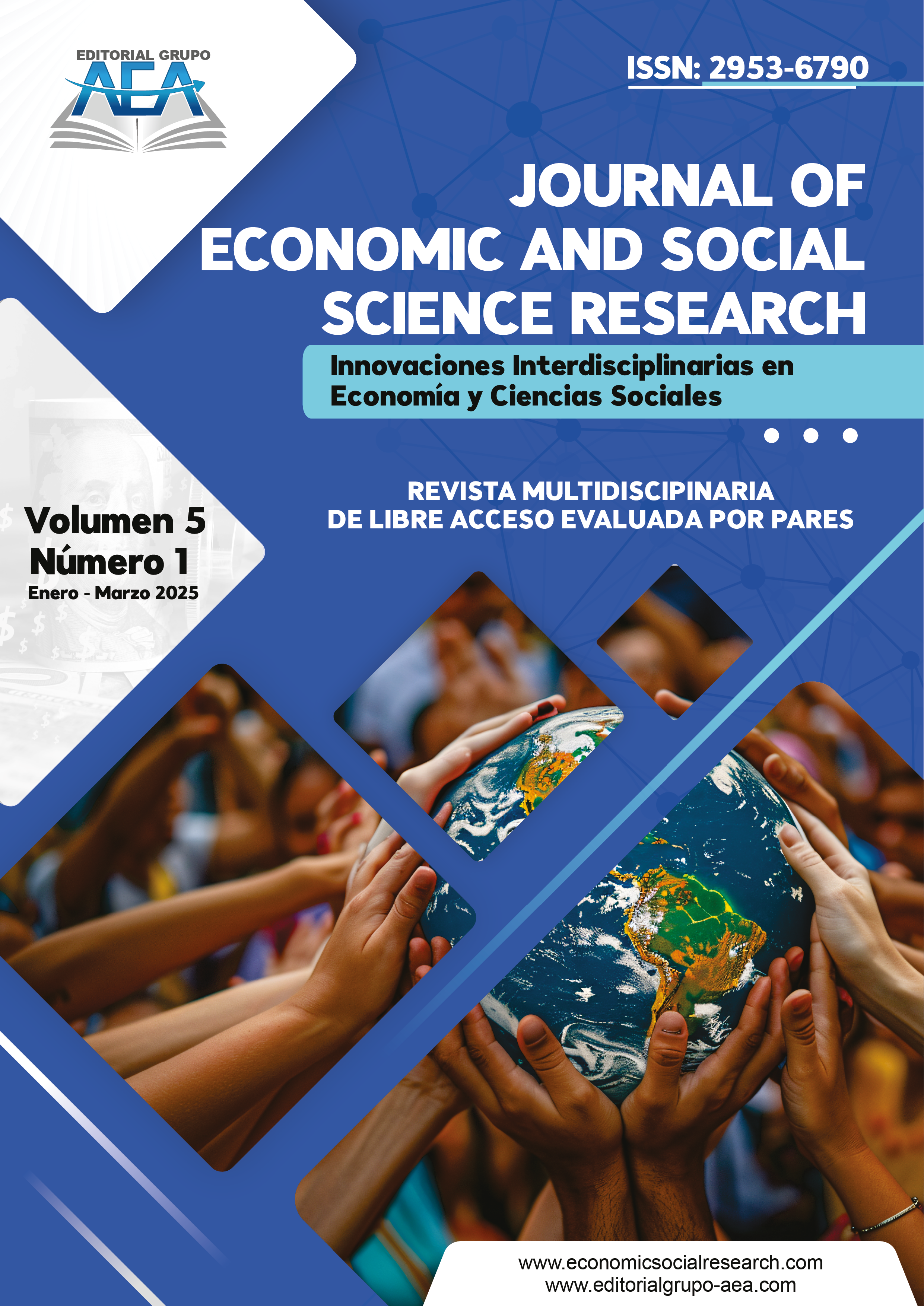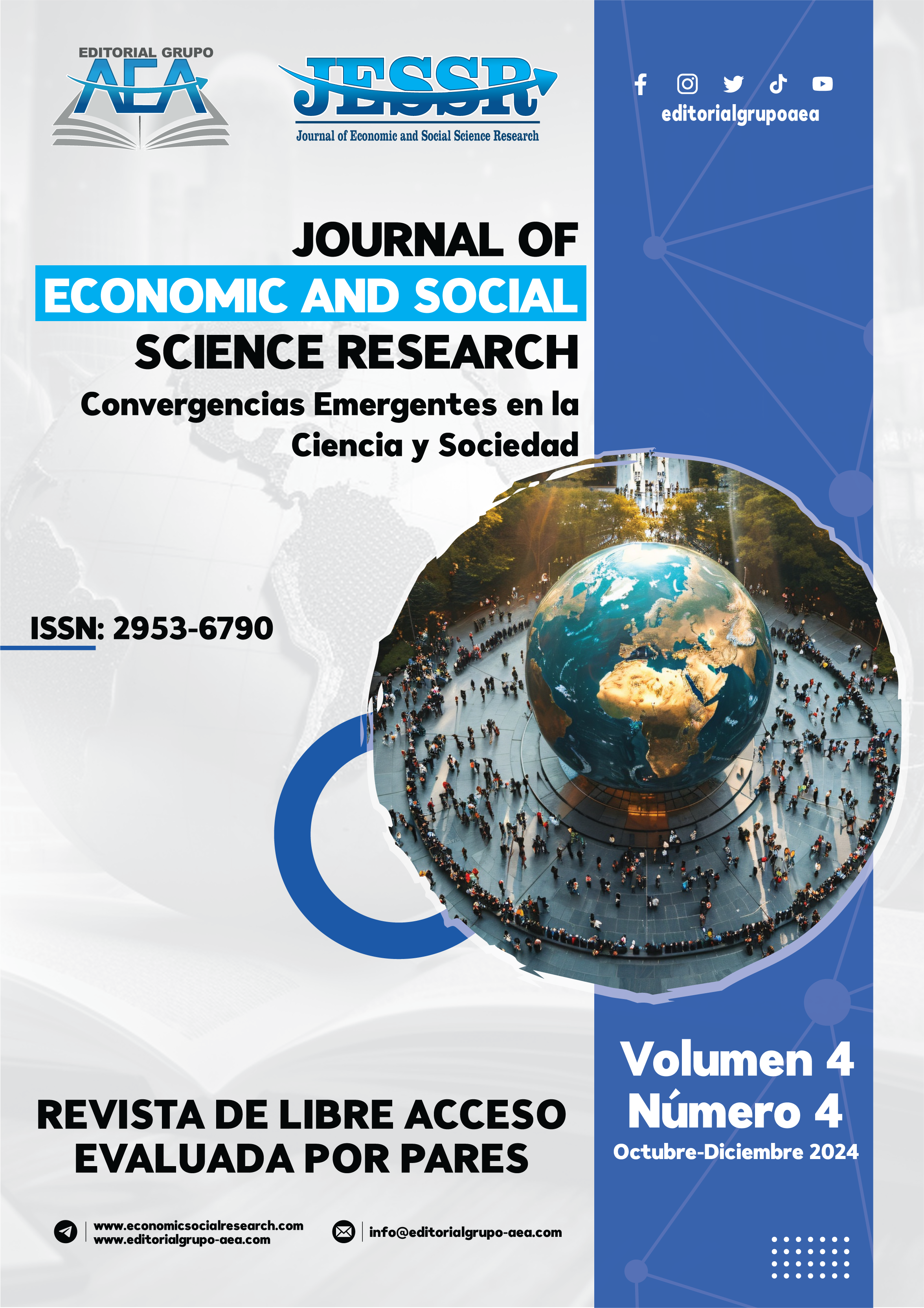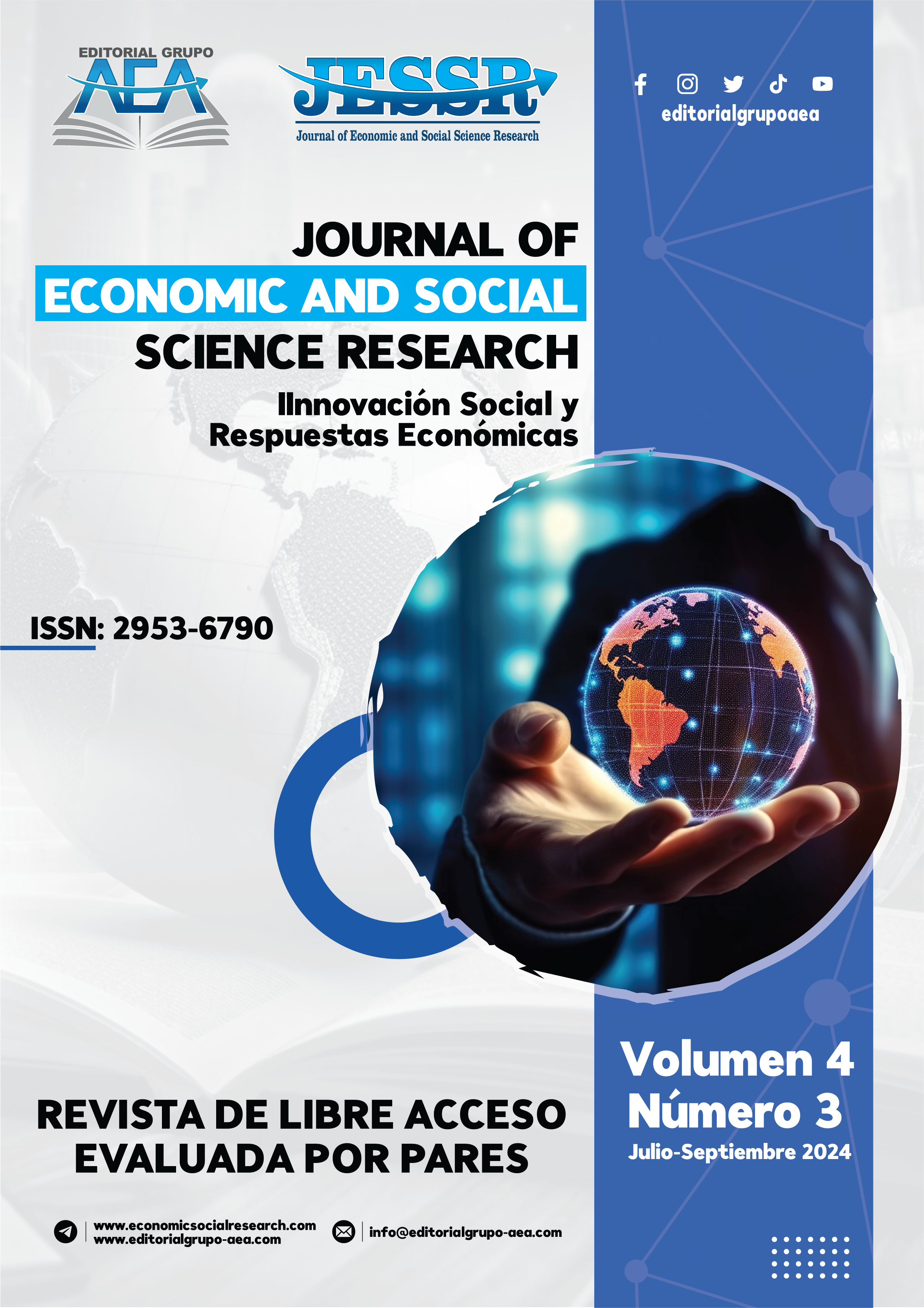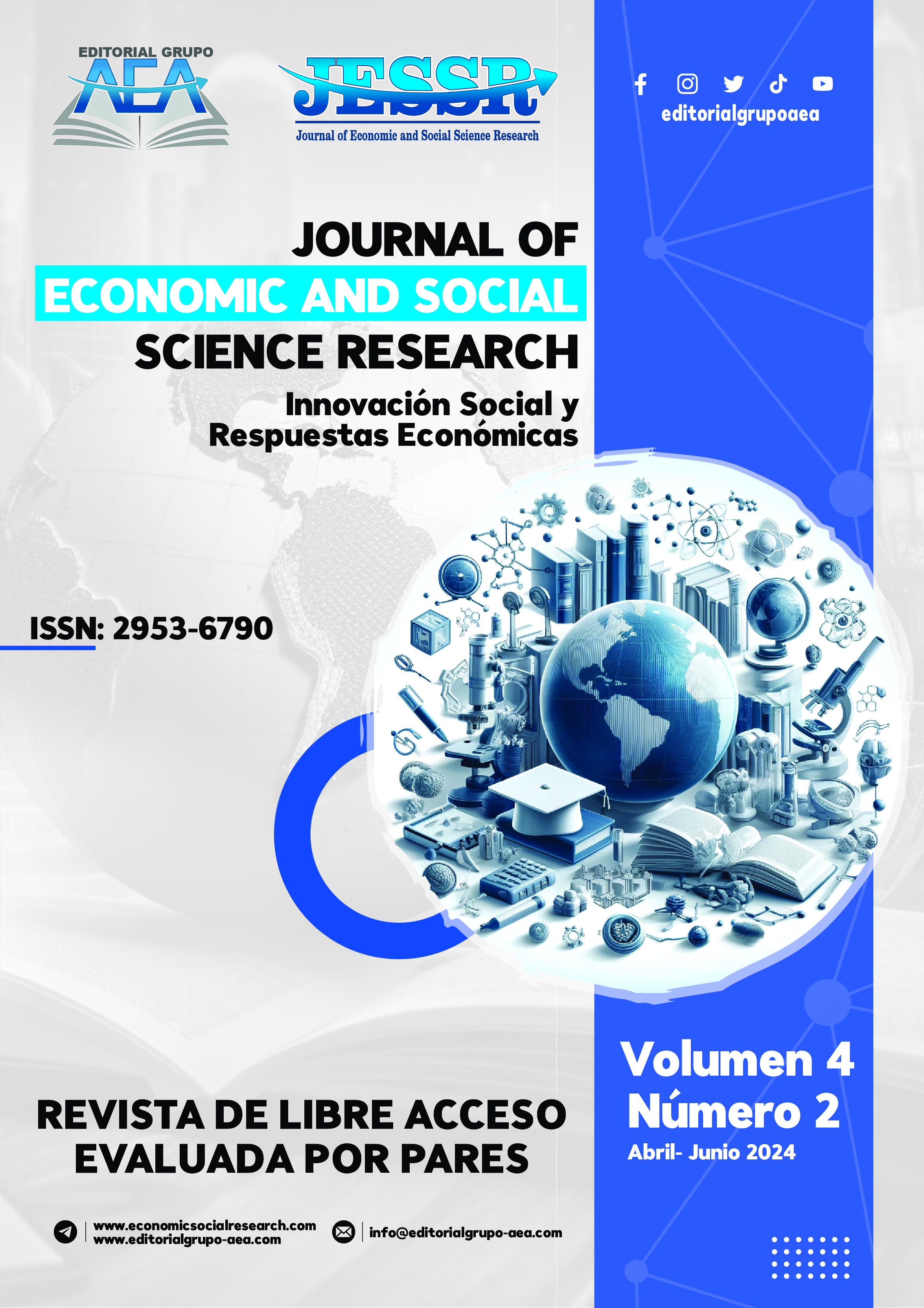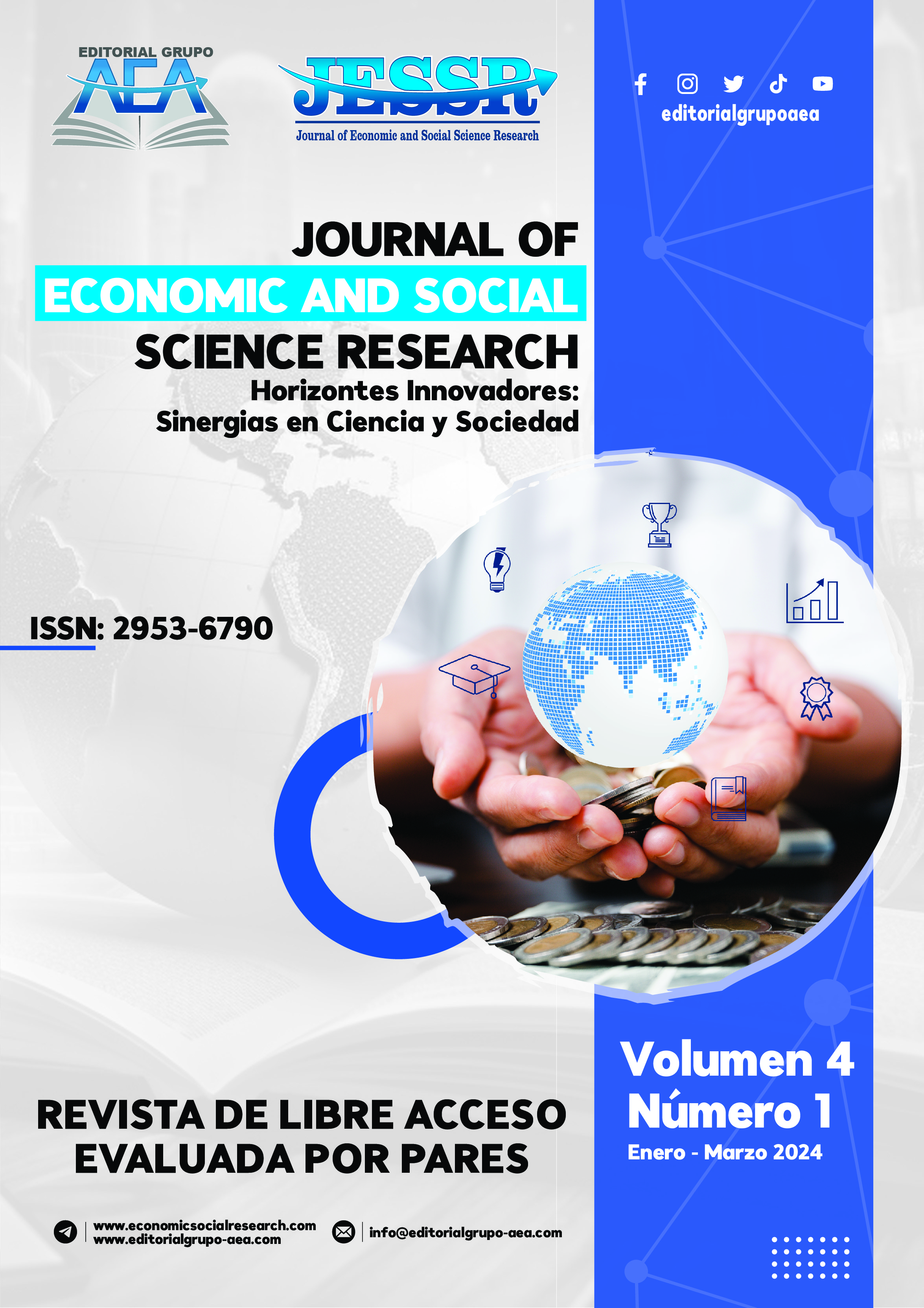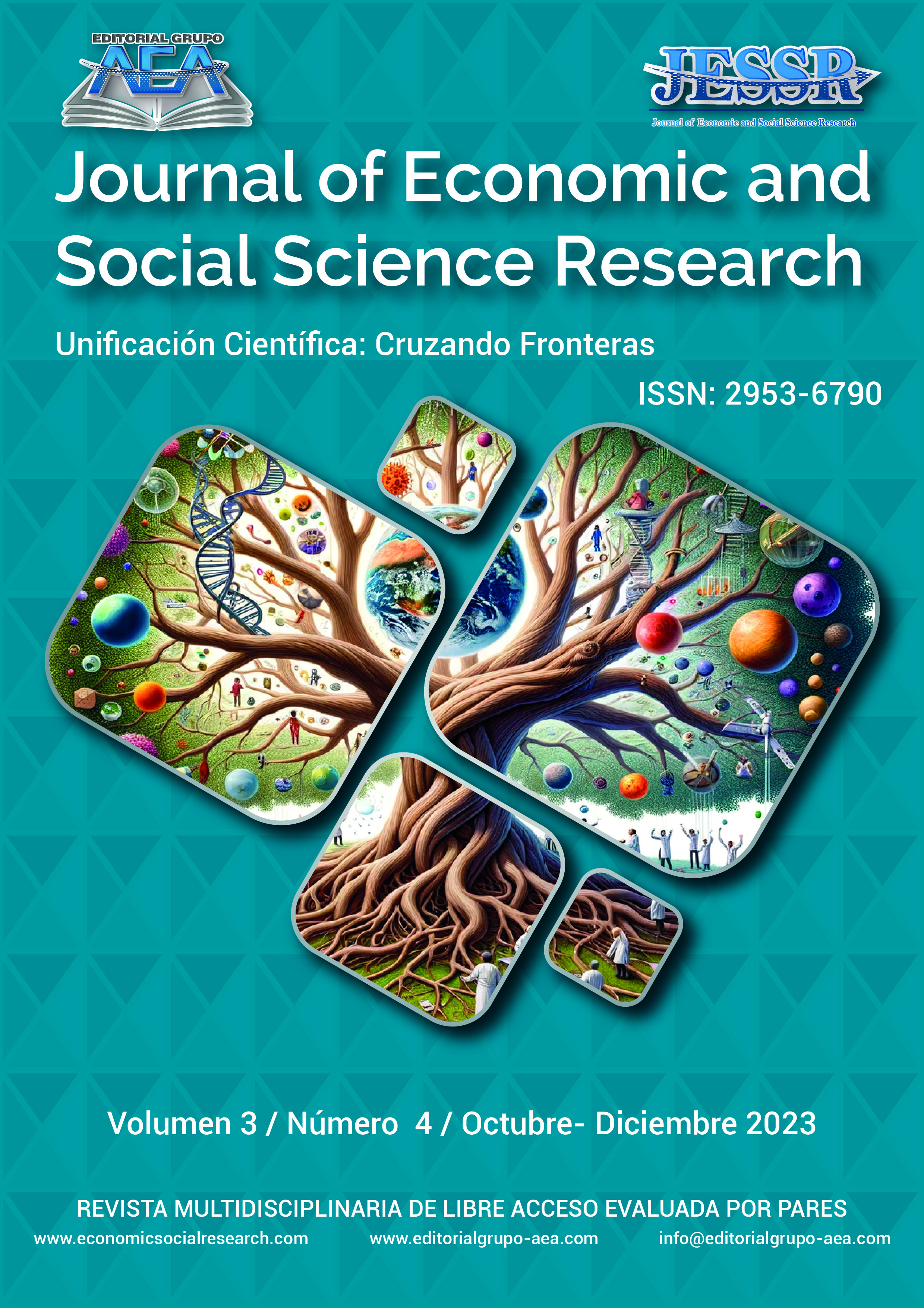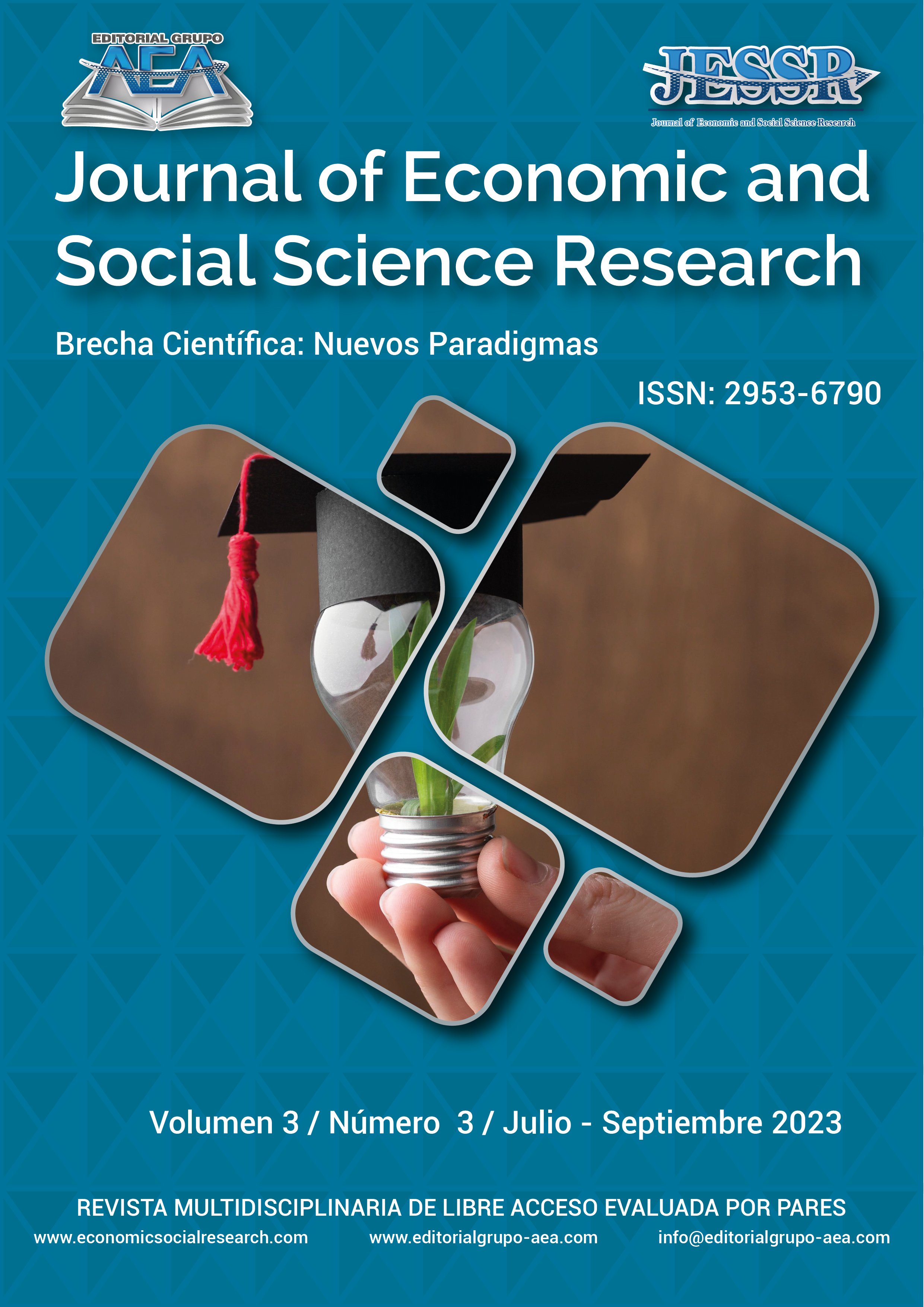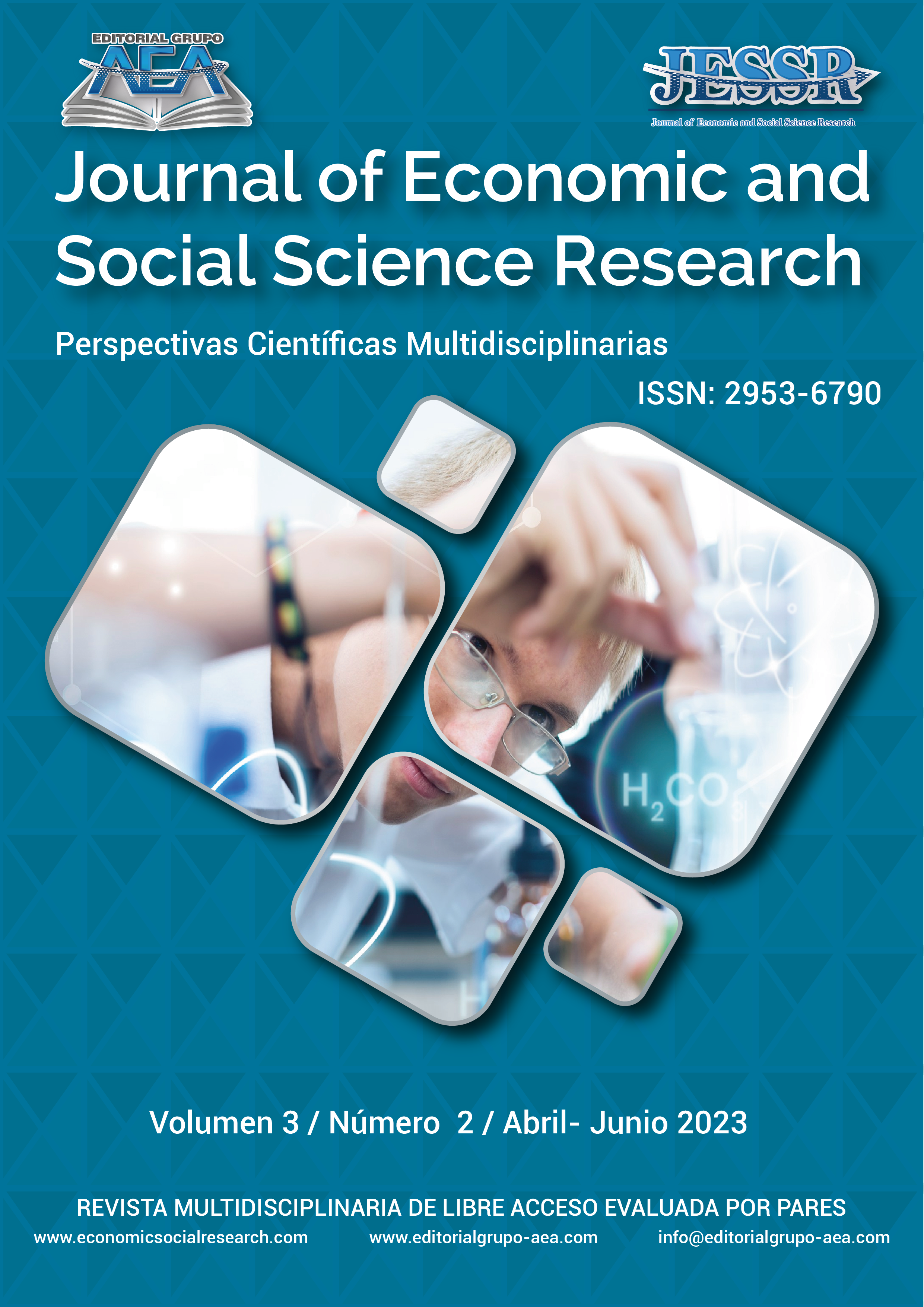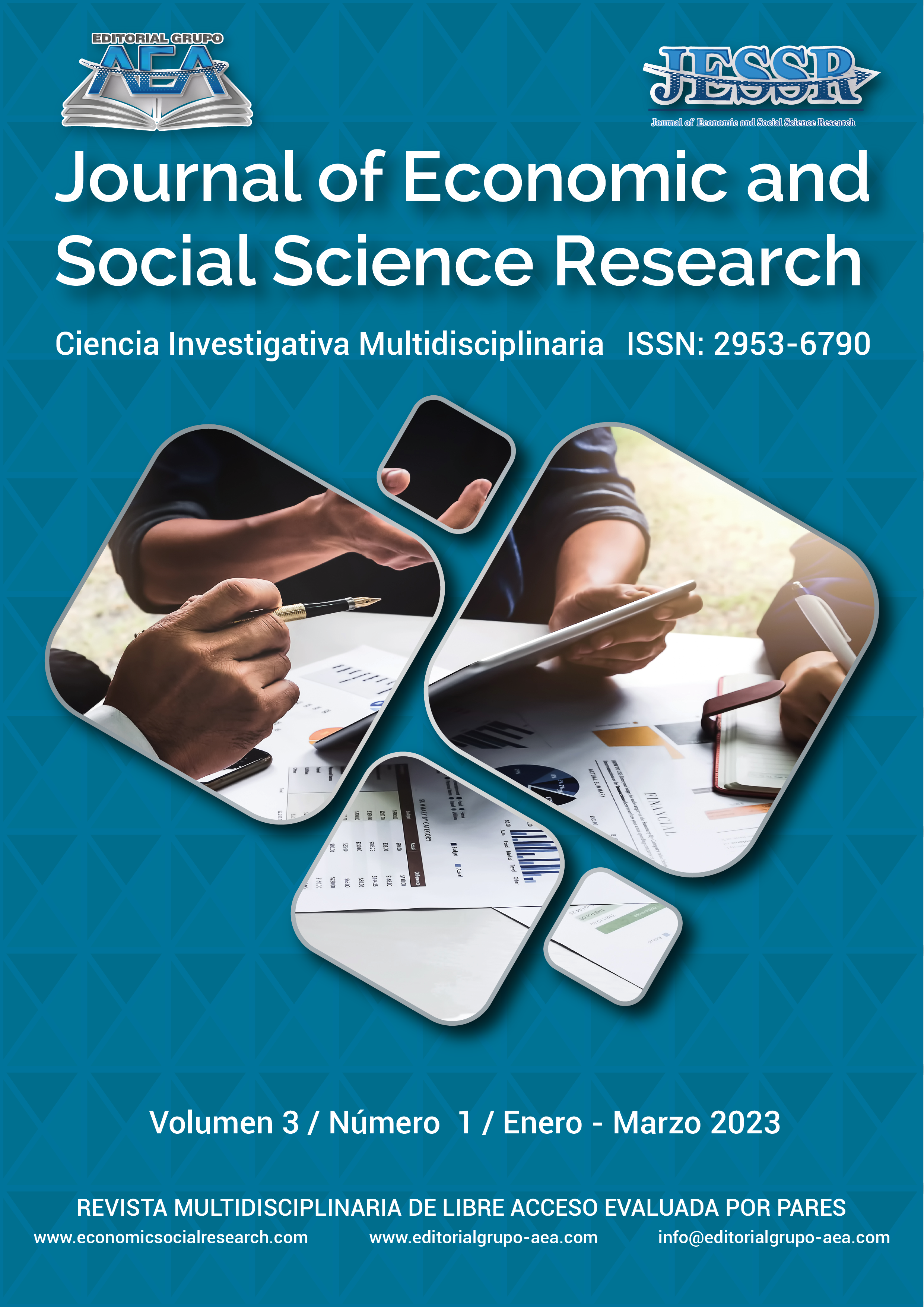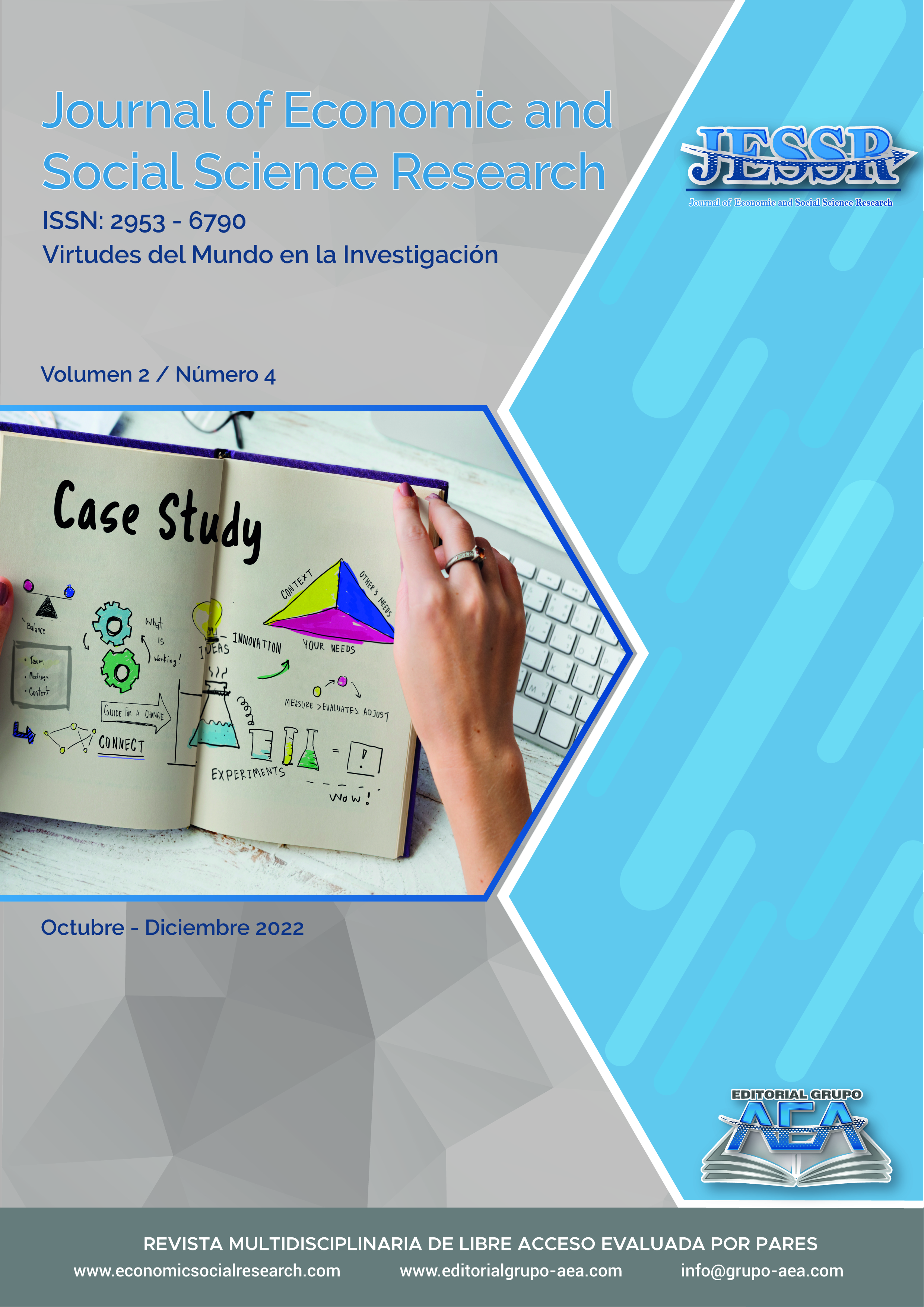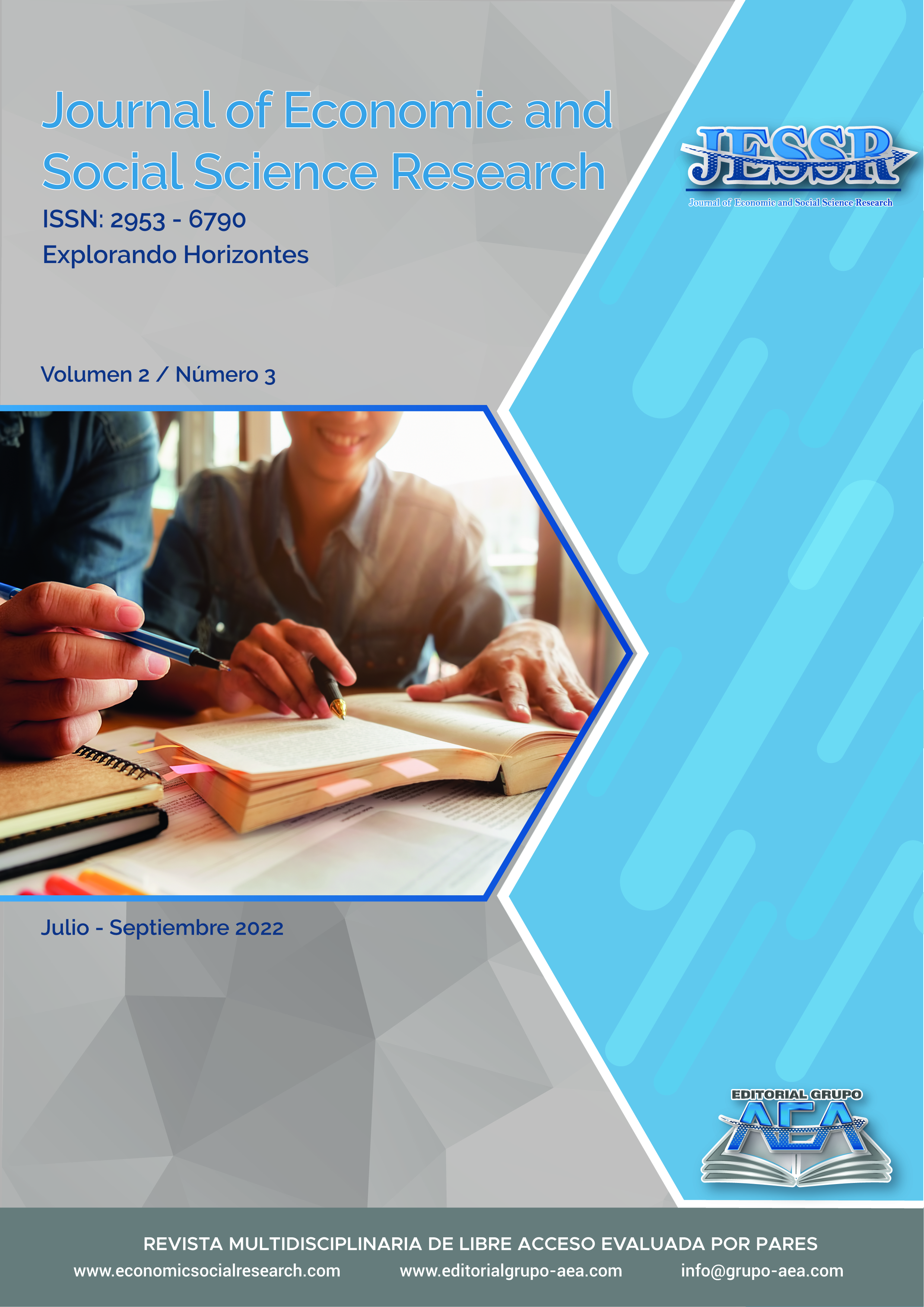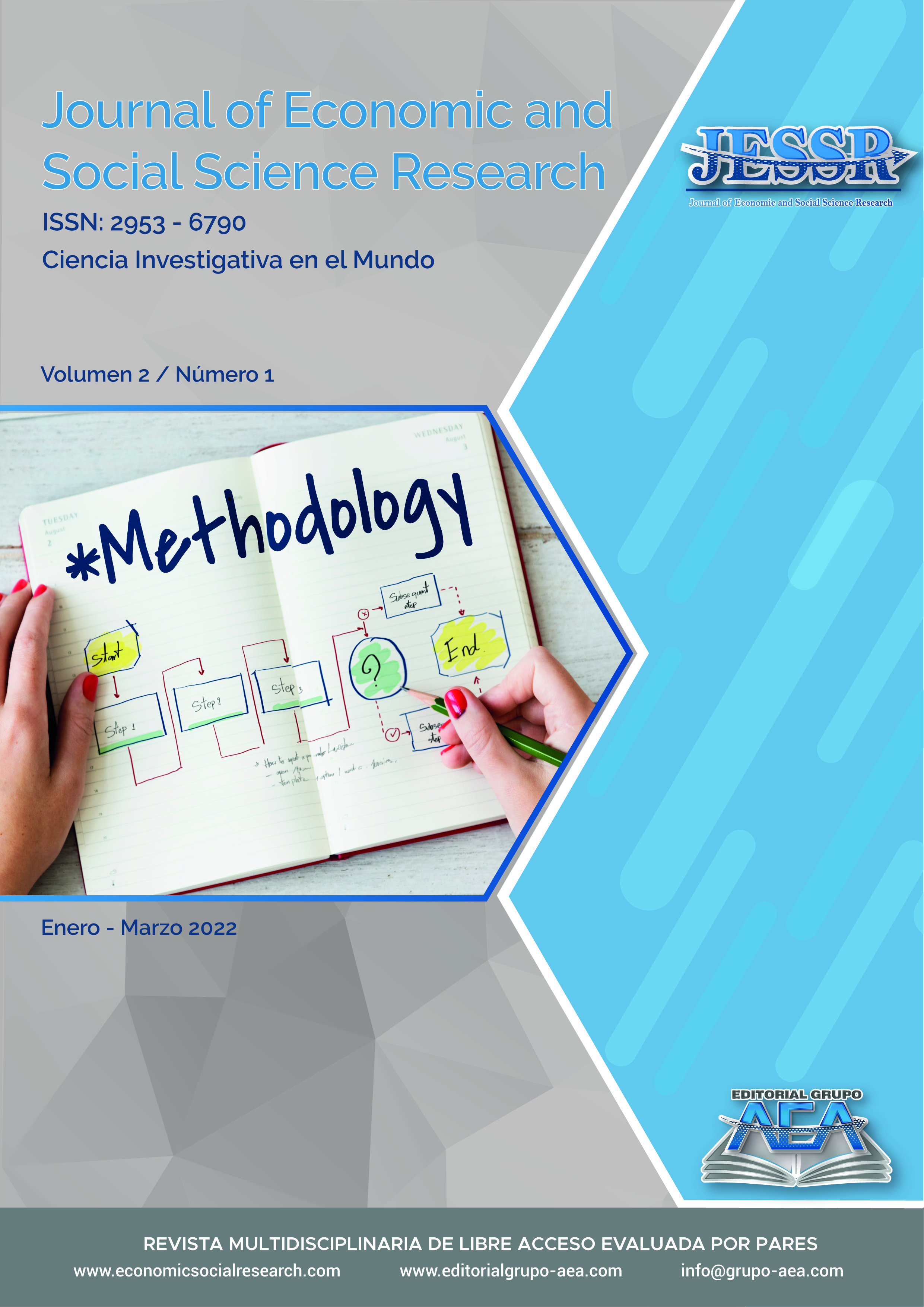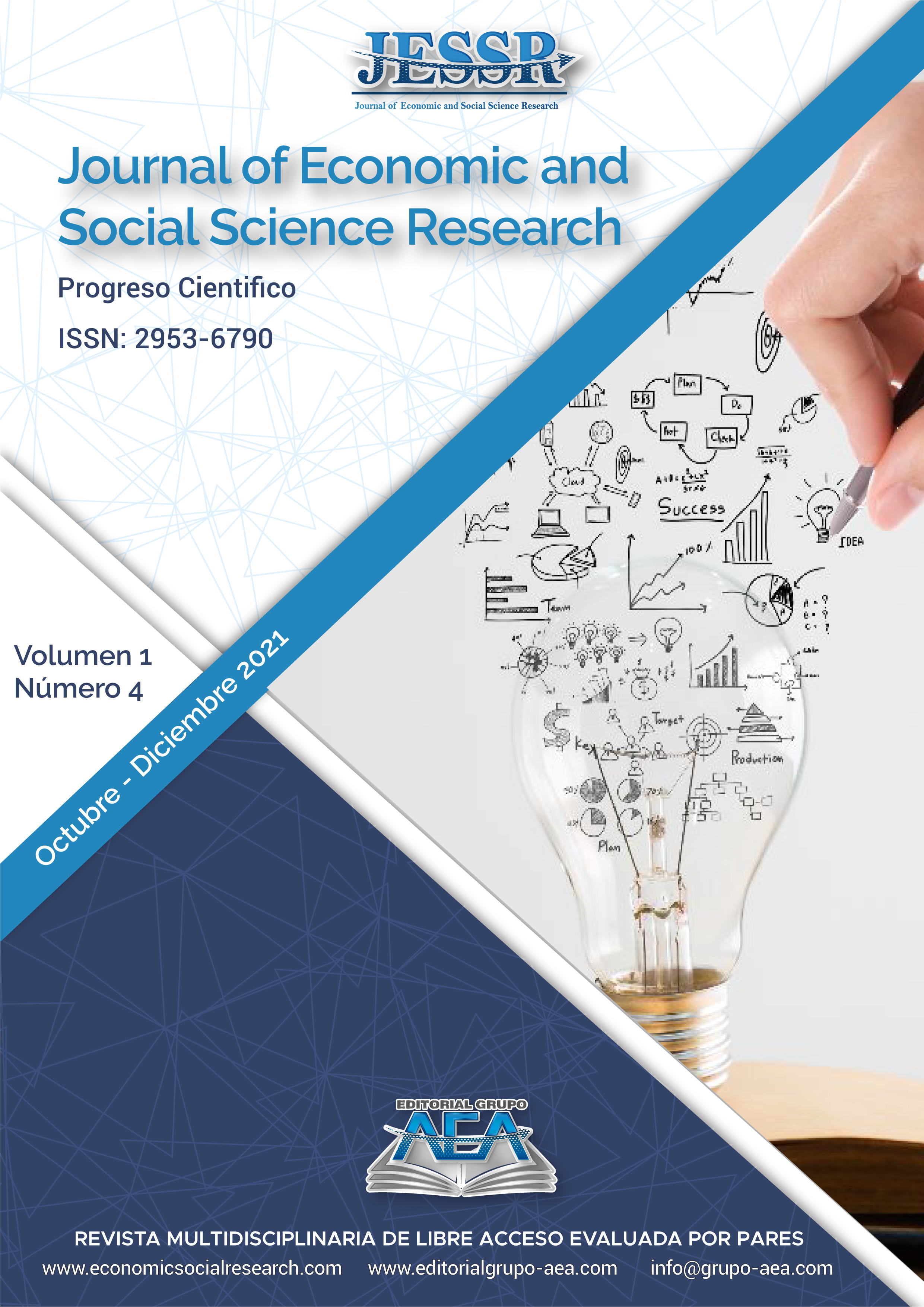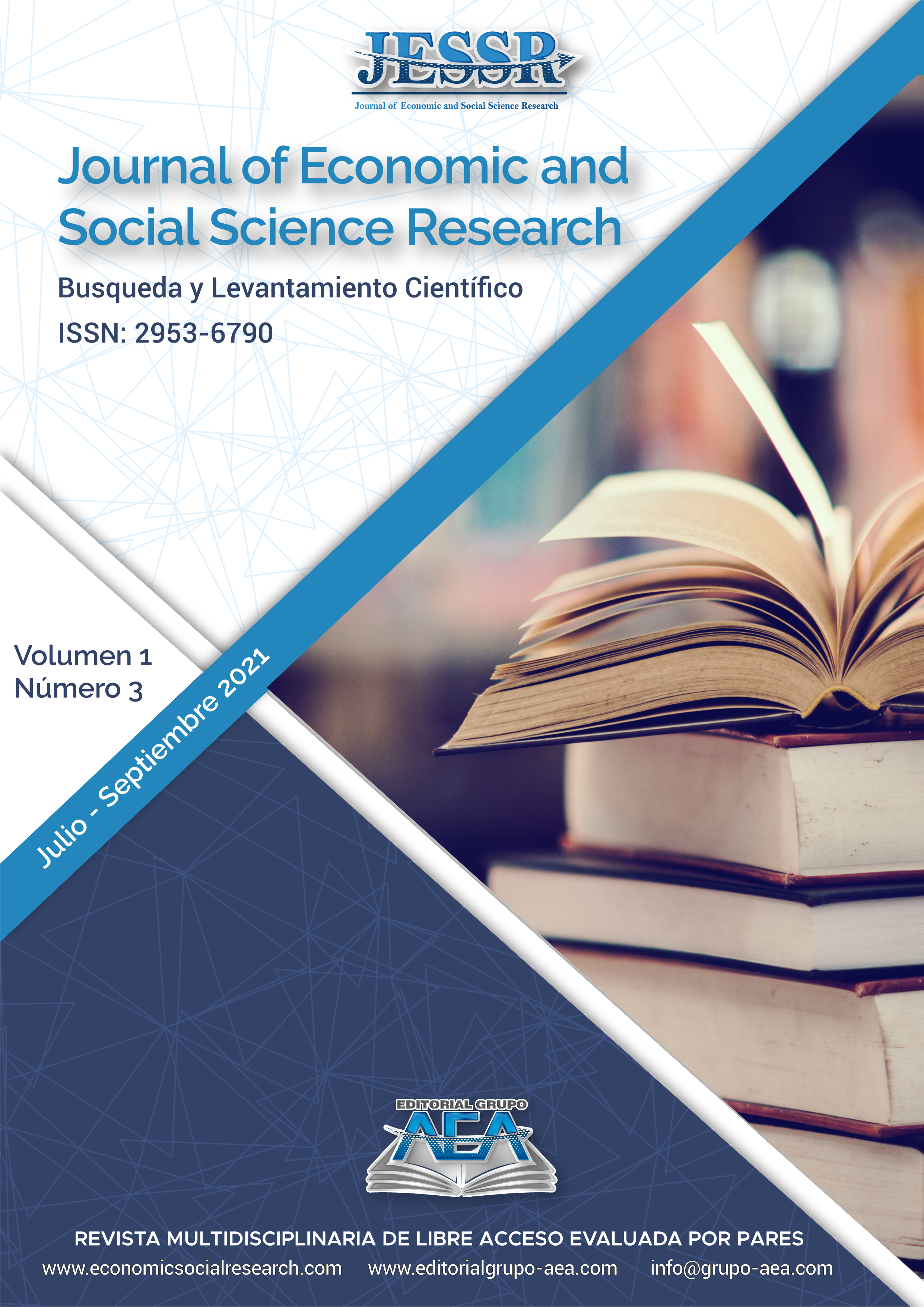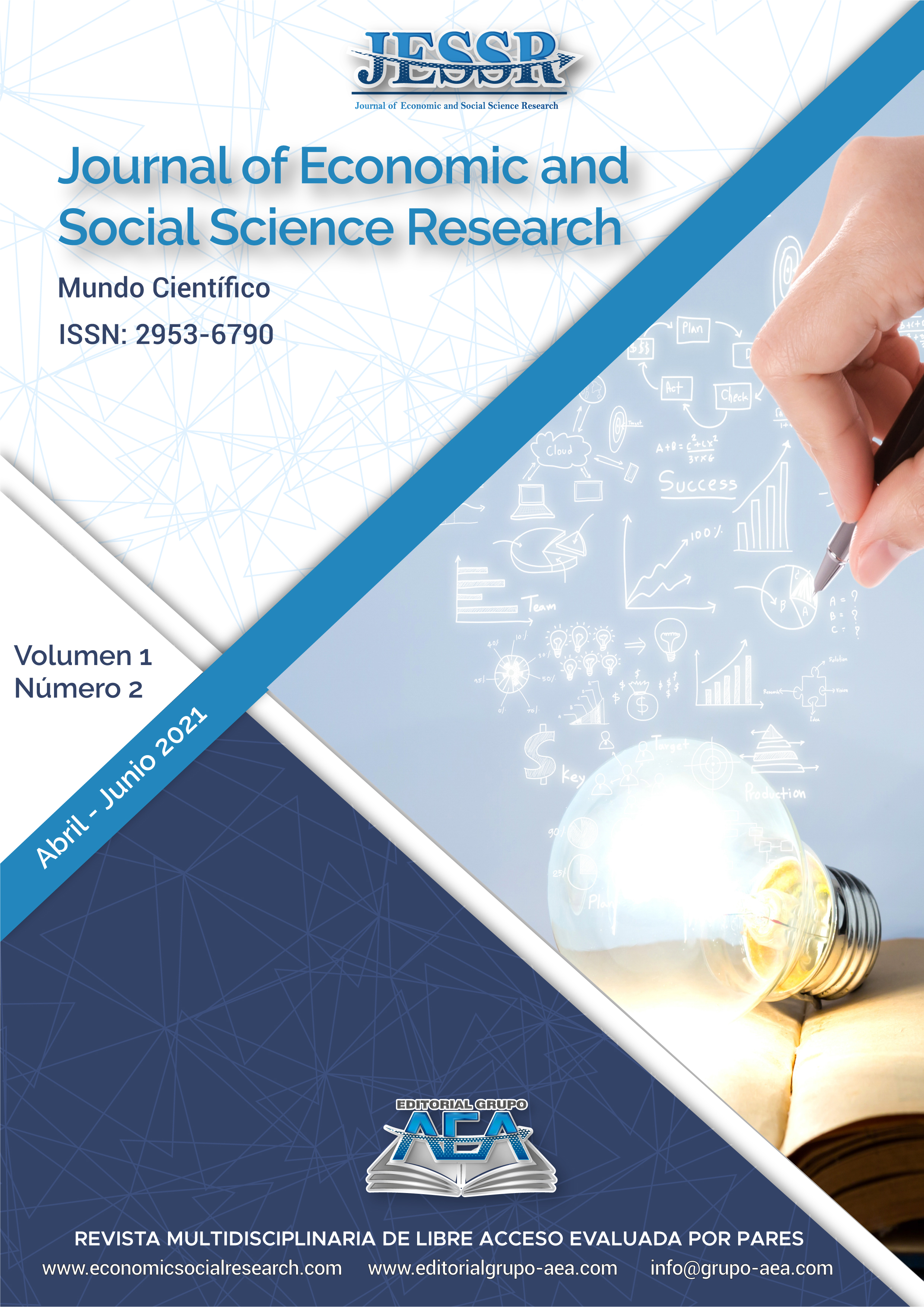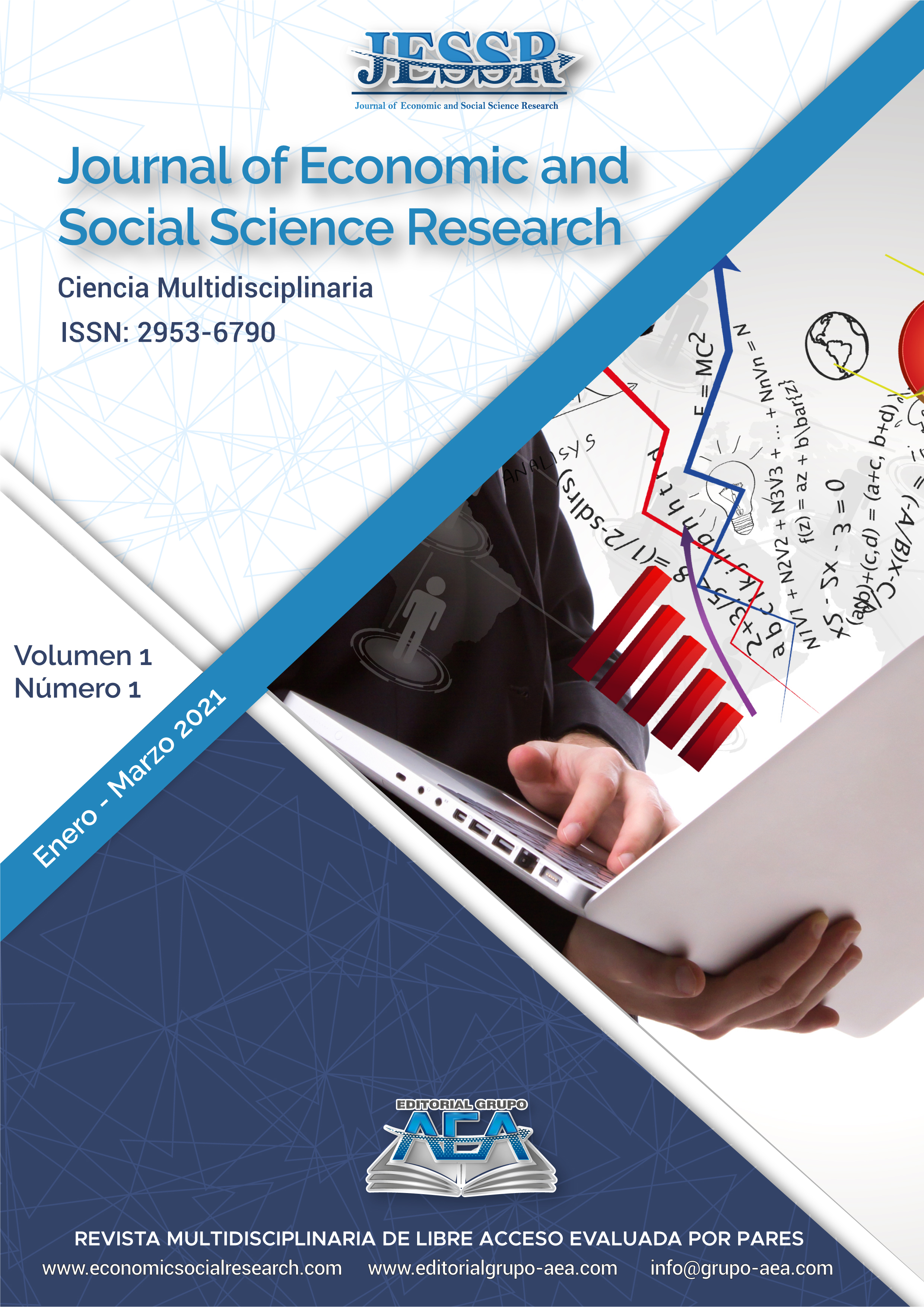Global Transformations in Social Innovation and Economic Resilience
Vol. 5 No. 4 (2025)
Contemporary processes of social and economic transformation demand strategies that combine innovation and resilience in the face of global uncertainty. This volume examines how social innovation articulates with economic sustainability to address challenges such as climate change, technological disruption, and structural inequalities. The contributions bring together interdisciplinary approaches that connect economics, social sciences, public policy, and technology, offering analytical frameworks and practical experiences that guide the construction of more inclusive, adaptive, and sustainable societies.
New perspectives on social and productive dynamics
Vol. 5 No. 3 (2025)
The aim is to explore, in a broad and interdisciplinary manner, the transformations that shape social and productive dynamics in different contexts. Bringing together research from various fields of knowledge, the journal addresses emerging phenomena, structural reconfigurations, and contemporary challenges that impact both social practices and production models. Through varied theoretical and methodological approaches, the articles collected here invite us to rethink the ways in which economic, cultural, institutional, and technological dimensions interact in shaping our societies.
Translated with DeepL.com (free version)
Economies in Transition and New Social Perspectives
Vol. 5 No. 2 (2025)
This issue brings together research that explores contemporary economic changes and their effects on social dynamics from an integrative and multidisciplinary perspective. The articles included address phenomena such as the reconfiguration of labor, institutional transformations, inequality, social mobility and the adaptation of public policies in the face of uncertain contexts. This issue seeks to provide a space for critical analysis and academic reflection that connects knowledge from economics, sociology, political science and other related disciplines. The intention is to provide conceptual and empirical tools to better understand the current challenges faced by societies in transition, thus fostering a complex, collaborative and sustainable social transformation-oriented approach.
Interdisciplinary Innovations in Economics and Social Sciences
Vol. 5 No. 1 (2025)
It explores interdisciplinary innovations that transform economics and the social sciences. Through collaborative approaches and emerging methodologies, the studies presented address contemporary challenges from multiple perspectives. It highlights research on sustainability, digitization, public policy and socioeconomic dynamics, promoting an enriching dialogue between disciplines.
Emerging Convergences in Science and Society
Vol. 4 No. 4 (2024)
It highlights the interaction between scientific disciplines and society, reflecting the growing need for integrated approaches to address contemporary problems. The word “emerging” suggests innovation and the emergence of new trends in research, while “convergences” emphasizes the fusion of diverse perspectives to generate multidimensional solutions. This approach encourages the inclusion of research that explores the relationships between economics, politics, technology and social sciences, promoting a broad, multidisciplinary dialogue on current issues.
Innovation and Trends in Multidisciplinary Research
Vol. 4 No. 3 (2024)
This issue of our journal focuses on exploring new trends and innovations in multidisciplinary research. Through a series of articles and case studies, topics spanning economics, sociology, political science and other related disciplines are addressed. The authors present novel approaches and emerging methodologies that are redefining the landscape of socioeconomic research. This issue seeks to provide a platform for the exchange of ideas and collaboration among researchers from diverse fields, fostering an interdisciplinary dialogue that enriches knowledge and practice in the field.
Social Innovation and Economic Responses
Vol. 4 No. 2 (2024)
This issue delves into the rich interweaving of social innovation and economic responses, extending into fields such as technology, education and sustainability. Through a diverse selection of articles, we discuss how social initiatives can shape resilient economies, influence educational policies and promote sustainable technological advances. With multidisciplinary panels, this volume invites deep reflection on the role of innovation in solving complex social problems and its impact on different sectors.
Innovative Horizons: Synergies in Science and Society
Vol. 4 No. 1 (2024)
In science and academia, the focus is on exploring the dynamic interaction between scientific research and social issues. In this framework, it would examine how technological and scientific advances can be applied to solve social problems, and vice versa, how social problems can influence and guide scientific research. This interdisciplinary approach encourages collaboration between different areas of knowledge, highlighting the importance of an integrated and holistic view in research. The title invites reflection on the social responsibility of science and the need for a constant dialogue between scientists and society to effectively address contemporary challenges.
Scientific Unification: Crossing Borders
Vol. 3 No. 4 (2023)
It reflects the idea of convergence and collaboration among diverse scientific disciplines to address global challenges. In this issue, you could explore how interdisciplinary collaboration is facilitating significant advances in fields such as sustainability, global health, and technology, and how the unification of different scientific fields is contributing to a more holistic understanding and innovative solutions to contemporary challenges.
Scientific Gap: New Paradigms
Vol. 3 No. 3 (2023)
In the issue "Scientific Gap: New Paradigms," we explore the fascinating and sometimes perplexing world of interdisciplinary and multidisciplinary research. This issue focuses on the gap that often exists between different scientific disciplines and how new research paradigms are working to close these gaps. In an increasingly interconnected world, the need for an interdisciplinary approach to science has never been greater. It explores how researchers from different disciplines are collaborating to address some of the greatest challenges of our time, from climate change to artificial intelligence. Through a series of research articles highlighting the work of those at the forefront of these new scientific paradigms.
Multidisciplinary Scientific Perspectives
Vol. 3 No. 2 (2023)
It refers to the way science itself changes and evolves over time. As new discoveries are made and new technologies are developed, our scientific perspectives also change. This is a dynamic and constantly evolving process that allows science to adapt and respond to new challenges and questions. Currently, for example, we are seeing a shift in perspective in many fields of science toward more interdisciplinary and collaborative approaches that seek to integrate knowledge from different disciplines to address complex problems. These new scientific perspectives are essential to continue advancing our understanding of the world.
Multidisciplinary Investigative Science
Vol. 3 No. 1 (2023)
Multidisciplinary research involves the collaboration and joint work of several disciplines to address a research problem or question. This may include combining different perspectives, methodologies and tools from different scientific fields or disciplines. Multidisciplinary research is often used in areas such as health, environment, technology, energy, transportation, security and sustainable development. Multidisciplinary research allows for a more complete and in-depth understanding of the problem and can lead to more innovative and effective solutions.
Virtues of the World in Research
Vol. 2 No. 4 (2022)
The virtues of the research world refer to the positive qualities expected of researchers and the research process itself. The virtues of the research world include integrity, objectivity, accountability, transparency, social responsibility, and innovation. These virtues are essential to ensure that research is ethical and contributes to the advancement of knowledge and the welfare of society.
Exploring Horizons
Vol. 2 No. 3 (2022)
Exploring scientific horizons refers to the continuous search for new knowledge and discoveries in a variety of scientific fields. This may include basic research, which seeks to understand the fundamental principles of nature, and applied research, which seeks to develop new technologies and solutions to practical problems.
The exploration of new scientific horizons is essential for the advancement of knowledge and the development of new technologies and practices. It can also help solve global problems and improve people's quality of life. The exploration of new scientific horizons requires collaboration and knowledge sharing among researchers from different disciplines and countries.
Science and Development
Vol. 2 No. 2 (2022)
Science and development are two areas that are closely related and work together to improve people's quality of life. Science provides the knowledge and tools needed to develop new technologies and solutions to problems, while development focuses on applying that knowledge and tools to improve the economic, social and environmental conditions of communities.
Science and technology are also essential for addressing global problems such as climate change, poverty and inequality. Scientific and technological advances are essential to finding sustainable and lasting solutions to these problems.
Research Science in the World
Vol. 2 No. 1 (2022)
Investigative science is the process by which information is gathered and analyzed to solve problems and answer questions. It is used in a variety of fields around the world, employing rigorous scientific methodologies to conduct research and using advanced technologies to collect and analyze data. Investigative science also relies on collaboration and knowledge sharing among researchers from different disciplines and countries. In general, investigative science is essential to the advancement of knowledge and the development of new technologies and practices in a variety of fields.
Scientific Progress
Vol. 1 No. 4 (2021)
Scientific progress refers to the advancement of knowledge and understanding of nature and the universe through scientific investigation. This includes developing new theories and models, conducting experiments and observations to verify or disprove hypotheses, and applying the results of research to solve problems and improve the quality of people's lives. Scientific progress is a continuous process and has occurred throughout human history. It has led to important discoveries and advances in areas such as medicine, technology and the environment, and has enabled humans to better understand the world around us and how it works. Scientific progress has also contributed to the development of society and has transformed the way we live and work.
Scientific Search and Survey
Vol. 1 No. 3 (2021)
Scientific search and survey are terms that refer to the process of gathering and analyzing information and data relevant to a scientific investigation. This may include reviewing previous scientific literature, conducting experiments and observations, collecting data, and interpreting results. Scientific search and survey are essential to scientific research, as they allow scientists to understand the current state of knowledge in a specific field and to determine which questions or problems need to be addressed in future research. In addition, these processes help scientists avoid duplication of effort and ensure that their work is based on solid evidence and prior knowledge.
Scientific World
Vol. 1 No. 2 (2021)
The scientific world is the set of people, institutions and processes that engage in scientific research and the application of its results in society. This includes scientists in all disciplines, from biology and chemistry to physics and the social sciences. It also includes universities and other research institutions, as well as governments and companies that support scientific research.
Multidisciplinary Science
Vol. 1 No. 1 (2021)
Multidisciplinary science is an approach to science that uses multiple scientific disciplines to address a research problem or topic. Multidisciplinary science is based on the idea that complex problems and real-world phenomena often cannot be adequately addressed from a single discipline, but require a broader perspective and the integration of knowledge from several disciplines.

